 Backend Development
Backend Development PHP Tutorial
PHP Tutorial Dreamweaver CMS database connection exception: troubleshooting and repair guide
Dreamweaver CMS database connection exception: troubleshooting and repair guide
DreamWeaver CMS (DedeCMS) is a powerful content management system that is widely used in the construction and management of various websites. However, in the process of using this system, you sometimes encounter database connection exceptions, which may cause the website to be unable to access or operate normally. This article will provide troubleshooting and repair guidelines for the abnormal situation of Dreamweaver CMS database connection, and will attach specific code examples to help users better solve such problems.
1. Abnormal performance
When a database connection abnormality occurs in DreamWeaver CMS, it usually manifests itself in one of the following situations:
- The website cannot be accessed normally , a database connection error prompt page appears;
- The website background cannot be logged in, prompting a database connection error or unable to connect to the database;
- The website data cannot be displayed correctly, or the database operation fails.
2. Troubleshooting steps
Step 1: Check the database configuration
First, open the configuration file of DreamWeaver CMSconfig .cache.php, confirm whether the database configuration information is correct. Make sure the following parameters are set correctly:
$db_host = 'localhost'; // 数据库主机 $db_user = 'root'; // 数据库用户名 $db_pass = 'password'; // 数据库密码 $db_name = 'database'; // 数据库名称
If the database configuration information is correct but you still cannot connect to the database, you can continue with the following troubleshooting steps.
Step 2: Check the database connection code
In the code of DreamWeaver CMS, the database connection is usually at data/common.inc.php file. Find the following code segment:
$link = @mysql_connect($db_host, $db_user, $db_pass) or die('Could not connect: ' . mysql_error());
mysql_select_db($db_name) or die('Could not select database');
mysql_query("SET NAMES 'utf8'");Confirm whether the database connection information in the above code is consistent with the configuration file. If it is inconsistent, it needs to be modified.
Step 3: Troubleshoot database access permission issues
Sometimes, database exceptions may be caused by insufficient database access permissions. You can log in to the MySQL database management tool and check whether the corresponding database user has the correct permissions. Execute the following statement on the MySQL command line:
GRANT ALL PRIVILEGES ON database.* TO 'username'@'localhost' IDENTIFIED BY 'password';
3. Repair example
Assume that our database configuration is as follows:
$db_host = 'localhost'; $db_user = 'root'; $db_pass = 'password'; $db_name = 'dedecms';
According to the above troubleshooting steps, we found that the database configuration is correct , the database connection code is also correct. But you still cannot connect to the database. At this time, you can try the following repair code:
$mysqli = new mysqli($db_host, $db_user, $db_pass, $db_name);
if ($mysqli->connect_error) {
die('Connect Error (' . $mysqli->connect_errno . ') ' . $mysqli->connect_error);
}
$mysqli->set_charset("utf8");Replace the above repair code with the original database connection code, and try to access the website or backend again to see if the problem is solved.
Conclusion
DreamWeaver CMS database connection exception may be caused by various reasons such as configuration errors, code problems or insufficient database permissions. Through the above troubleshooting steps and repair examples, we hope to help users quickly solve this type of problem and ensure the normal operation of the website. Hope this article is helpful to you.
The above is the detailed content of Dreamweaver CMS database connection exception: troubleshooting and repair guide. For more information, please follow other related articles on the PHP Chinese website!
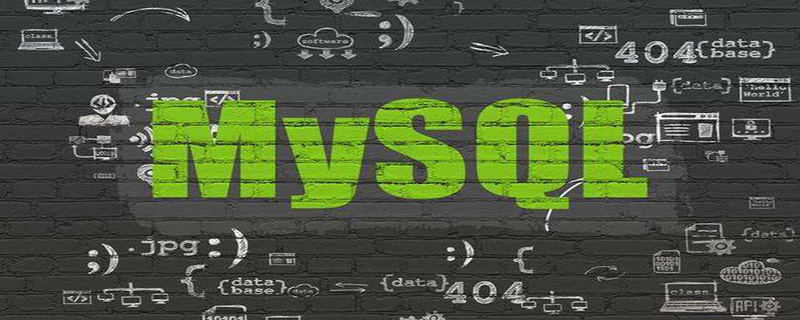 深入理解MySQL索引优化器工作原理Nov 09, 2022 pm 02:05 PM
深入理解MySQL索引优化器工作原理Nov 09, 2022 pm 02:05 PM本篇文章给大家带来了关于mysql的相关知识,其中主要介绍了关于索引优化器工作原理的相关内容,其中包括了MySQL Server的组成,MySQL优化器选择索引额原理以及SQL成本分析,最后通过 select 查询总结整个查询过程,下面一起来看一下,希望对大家有帮助。
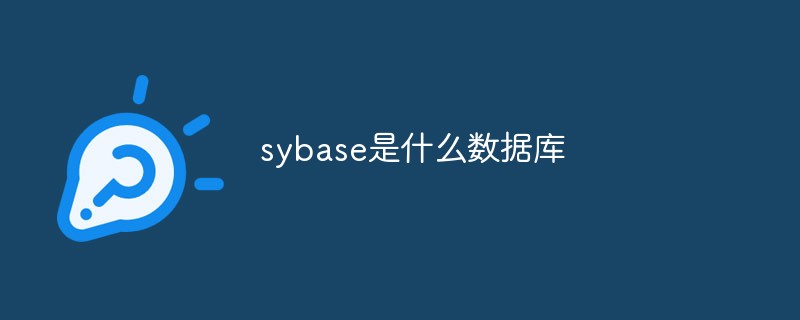 sybase是什么数据库Sep 22, 2021 am 11:39 AM
sybase是什么数据库Sep 22, 2021 am 11:39 AMsybase是基于客户/服务器体系结构的数据库,是一个开放的、高性能的、可编程的数据库,可使用事件驱动的触发器、多线索化等来提高性能。
 visual foxpro数据库文件是什么Jul 23, 2021 pm 04:53 PM
visual foxpro数据库文件是什么Jul 23, 2021 pm 04:53 PMvisual foxpro数据库文件是管理数据库对象的系统文件。在VFP中,用户数据是存放在“.DBF”表文件中;VFP的数据库文件(“.DBC”)中不存放用户数据,它只起将属于某一数据库的 数据库表与视图、连接、存储过程等关联起来的作用。
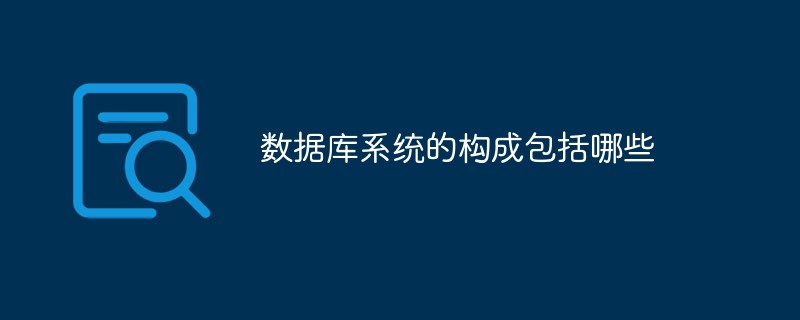 数据库系统的构成包括哪些Jul 15, 2022 am 11:58 AM
数据库系统的构成包括哪些Jul 15, 2022 am 11:58 AM数据库系统由4个部分构成:1、数据库,是指长期存储在计算机内的,有组织,可共享的数据的集合;2、硬件,是指构成计算机系统的各种物理设备,包括存储所需的外部设备;3、软件,包括操作系统、数据库管理系统及应用程序;4、人员,包括系统分析员和数据库设计人员、应用程序员(负责编写使用数据库的应用程序)、最终用户(利用接口或查询语言访问数据库)、数据库管理员(负责数据库的总体信息控制)。
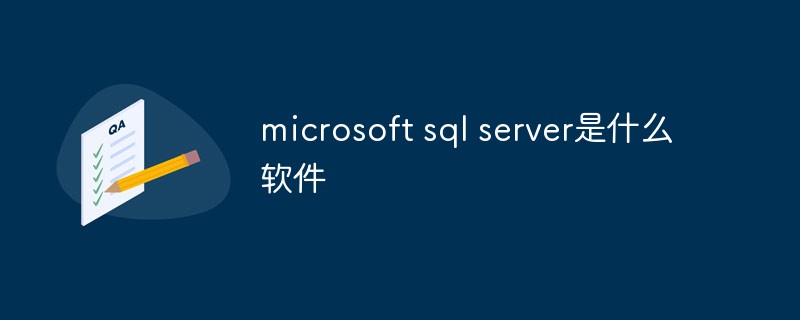 microsoft sql server是什么软件Feb 28, 2023 pm 03:00 PM
microsoft sql server是什么软件Feb 28, 2023 pm 03:00 PMmicrosoft sql server是Microsoft公司推出的关系型数据库管理系统,是一个全面的数据库平台,使用集成的商业智能(BI)工具提供了企业级的数据管理,具有使用方便可伸缩性好与相关软件集成程度高等优点。SQL Server数据库引擎为关系型数据和结构化数据提供了更安全可靠的存储功能,使用户可以构建和管理用于业务的高可用和高性能的数据应用程序。
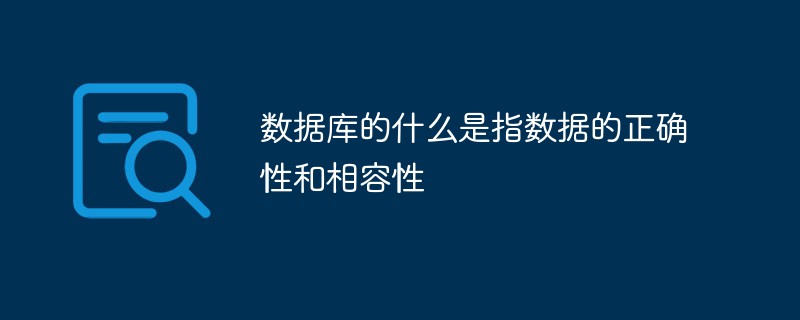 数据库的什么是指数据的正确性和相容性Jul 04, 2022 pm 04:59 PM
数据库的什么是指数据的正确性和相容性Jul 04, 2022 pm 04:59 PM数据库的“完整性”是指数据的正确性和相容性。完整性是指数据库中数据在逻辑上的一致性、正确性、有效性和相容性。完整性对于数据库系统的重要性:1、数据库完整性约束能够防止合法用户使用数据库时向数据库中添加不合语义的数据;2、合理的数据库完整性设计,能够同时兼顾数据库的完整性和系统的效能;3、完善的数据库完整性有助于尽早发现应用软件的错误。
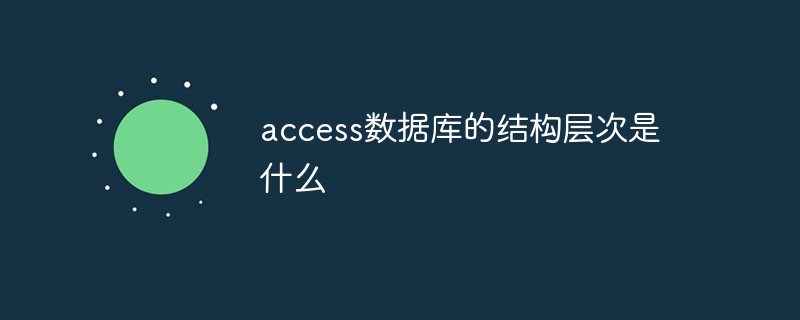 access数据库的结构层次是什么Aug 26, 2022 pm 04:45 PM
access数据库的结构层次是什么Aug 26, 2022 pm 04:45 PM结构层次是“数据库→数据表→记录→字段”;字段构成记录,记录构成数据表,数据表构成了数据库。数据库是一个完整的数据的记录的整体,一个数据库包含0到N个表,一个表包含0到N个字段,记录是表中的行。
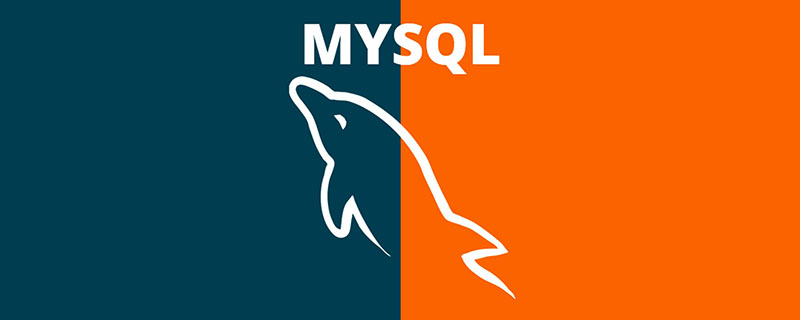 mysql查询慢的因素除了索引,还有什么?Jul 19, 2022 pm 08:22 PM
mysql查询慢的因素除了索引,还有什么?Jul 19, 2022 pm 08:22 PMmysql查询为什么会慢,关于这个问题,在实际开发经常会遇到,而面试中,也是个高频题。遇到这种问题,我们一般也会想到是因为索引。那除开索引之外,还有哪些因素会导致数据库查询变慢呢?


Hot AI Tools

Undresser.AI Undress
AI-powered app for creating realistic nude photos

AI Clothes Remover
Online AI tool for removing clothes from photos.

Undress AI Tool
Undress images for free

Clothoff.io
AI clothes remover

AI Hentai Generator
Generate AI Hentai for free.

Hot Article

Hot Tools

MantisBT
Mantis is an easy-to-deploy web-based defect tracking tool designed to aid in product defect tracking. It requires PHP, MySQL and a web server. Check out our demo and hosting services.

SublimeText3 Chinese version
Chinese version, very easy to use

Dreamweaver CS6
Visual web development tools

mPDF
mPDF is a PHP library that can generate PDF files from UTF-8 encoded HTML. The original author, Ian Back, wrote mPDF to output PDF files "on the fly" from his website and handle different languages. It is slower than original scripts like HTML2FPDF and produces larger files when using Unicode fonts, but supports CSS styles etc. and has a lot of enhancements. Supports almost all languages, including RTL (Arabic and Hebrew) and CJK (Chinese, Japanese and Korean). Supports nested block-level elements (such as P, DIV),

DVWA
Damn Vulnerable Web App (DVWA) is a PHP/MySQL web application that is very vulnerable. Its main goals are to be an aid for security professionals to test their skills and tools in a legal environment, to help web developers better understand the process of securing web applications, and to help teachers/students teach/learn in a classroom environment Web application security. The goal of DVWA is to practice some of the most common web vulnerabilities through a simple and straightforward interface, with varying degrees of difficulty. Please note that this software






